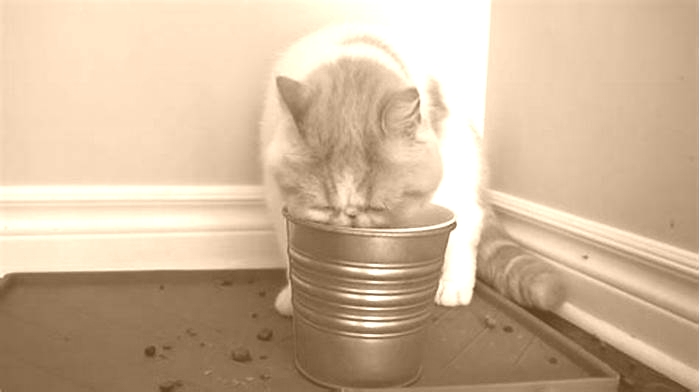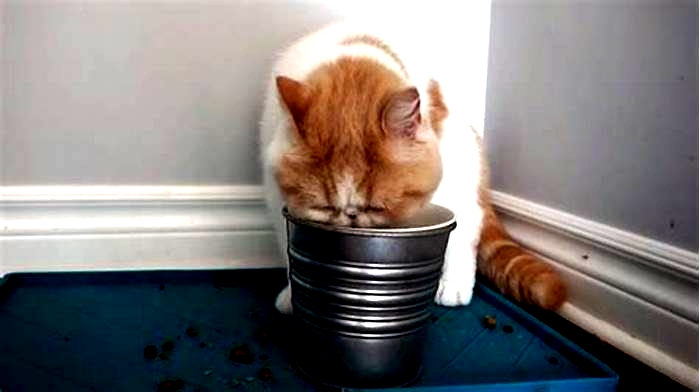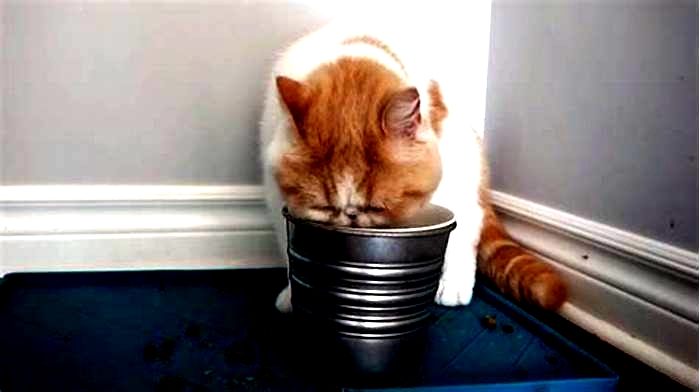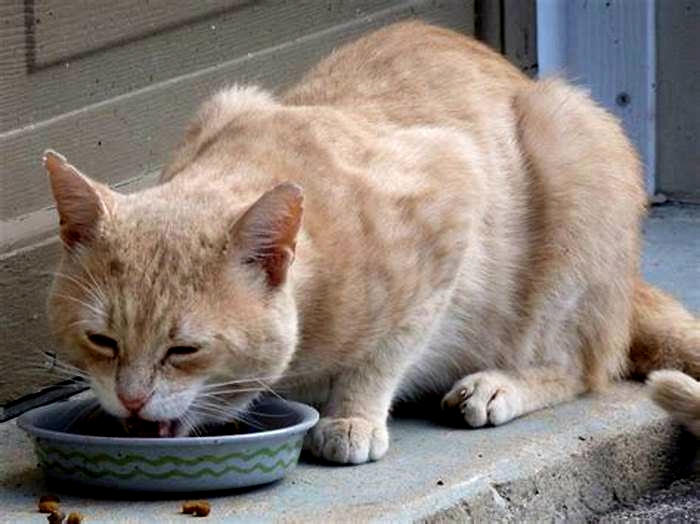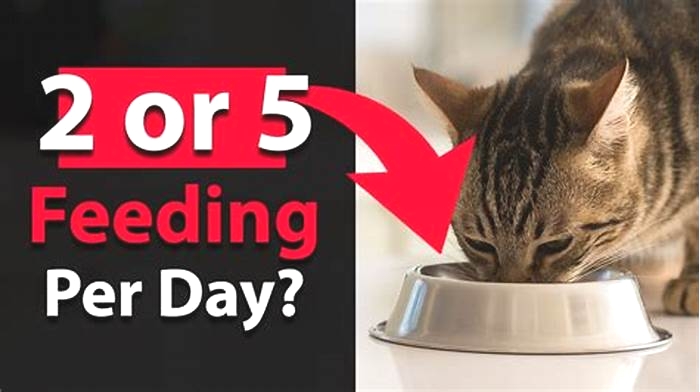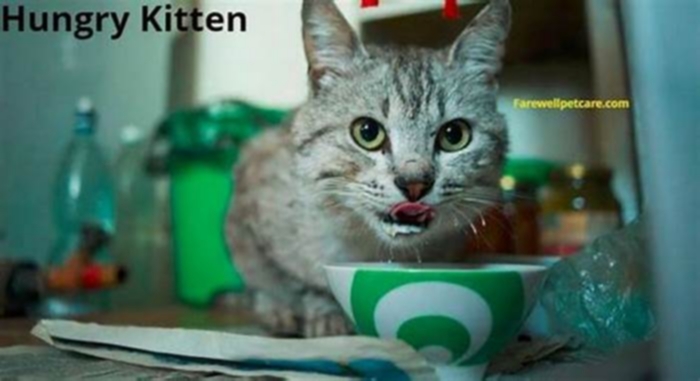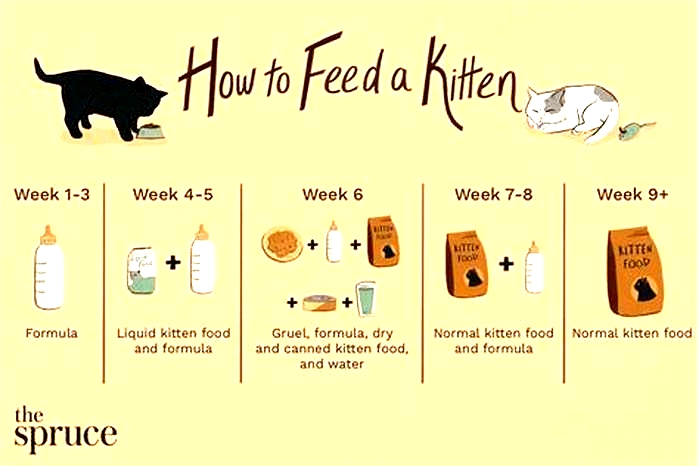Why is my kitten always hungry
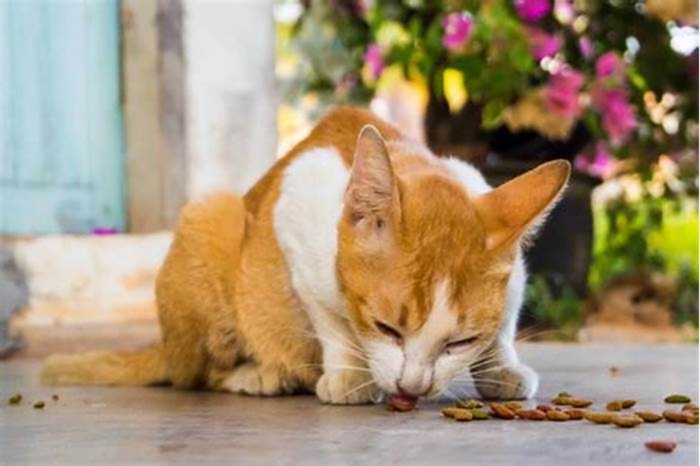
Why is My Kitten Always Hungry?
Kittens tend to grow fast, and it becomes typical behavior for them to beg and eat as much as possible. As a result, most pet owners are encouraged to free-choice feed their kittens if they are younger than four months old. At that point, kittens are at a crucial stage where they need to gain nutrients to ensure a proper balance of body growth and activeness.
These nutrients help build their body tissues and gain enough energy for the day. Regardless, it is essential to note that when a kitten reaches four months old, we need to start maintaining a feed schedule for them. Keeping a proper feed schedule helps avoid overfeeding a kitten as they have smaller stomachs and cannot withstand large amounts of food.
While it might be hard to turn down a begging kitten, it is important that you dont overfeed your kitten. It is important to get to the root of the issue and find out why your kitten is always hungry.
Reasons why kittens are always hungry
Kittens are always hungry because of boredom and food deprivation. You kitten might also be hungry because of health issues.
- Boredom: When your kitten has nothing better to do, it may want to eat more. Allowing more playtime for kittens can lessen their chances of boredom. Using play toys such as track toys, chasers, etc., can be possible ways to increase playtime and avoid their boredom eating habits.
- Food Deprivation: Past traumas can affect a kittens eating habits. For example, if you are dealing with a rescue kitten deprived of eating the proper amount of food, they might be used to eating food whenever it is available. Getting your pet used to a feeding schedule can help their obsession with food once they become older.
- Health issues: Worms, such as tapeworms, roundworms, lungworms, and hookworms. These parasites can be another factor causing your kittens hunger. Worms steal and take the nutrients in their food, making them hungry more than usual. Constant overeating can also lead to other health issues like obesity, diabetes, or hyperthyroidism.
You should check with your local veterinarian and have them examine your kittens and symptoms. Talking to a medical professional can help you identify their kittens issues. Vets will be able to diagnose them properly and advise you to ensure your kitten is back to normal! However, there are other measures used to prevent overheating issues.
How to prevent your kitten from being hungry all the time
- Asmentioned before, teaching your kitten to get used to a feeding schedule is essential to avoid constant begging for food. Once you remain consistent on their schedule, kittens may start to understand when their food will be available.
- Dont overfeed your kitten: This will also help prevent your kitten from becoming bloated.
- Avoid human food: Sometimes, it might be hard to resist giving your kitten a tiny nibble of your food. However, refrain from doing so as they might always expect to receive food this way. It would only disrupt their feeding schedules.
- Play toys: Once again, play toys are crucial. Puzzle toys are usually the best option because they help occupy your kittens mind when they are eating, and the less they will think about eating more. Buy a wide variety of play toys to keep your kitten entertained before, after, and during food. If your kitten doesnt receive enough social interactions while it is young, it could develop single kitten syndrome.
- Check-ups: It is vital to check up with your local vet, especially when your kitten is still in its development. Adequately monitor their changes because it efficiently prevents health issues that may arise.
Conclusion
As pet owners, we pay good attention to our kittens behaviors and habits, which is the most significant factor in ensuring their proper health and growth. If we notice anything unusual or different, take all the necessary steps given and find a way to make sure your kitten is in good condition once more.
Of course, we must remember that young kittens eat more often, but trusting your vets and gut intuition is vital because sometimes there might be an underlying health problem we didnt realize was even there.
Also, you should never overfeed your kitten. It can lead to health issues and indigestion for the young kittens. Lastly, if your kittens hunger has become excessive, it might imply underlying health or behavioral issues.
Your Cat is Always Hungry: What Should You Do?
Some cats are better than others at cutting themselves off from the kibble when they're no longer physically hungry. No different from some humans, some bored house cats have been known to snack purely out of boredom. Unfortunately, snacking when they aren't actually hungry can lead to a host of medical conditions, including obesity, osteoarthritis, urinary problems and diabetes mellitus. According toCornell Feline Health Center, obese cats are twice as likely to pass away when they're middle-aged (that's ages 6-12 for cats) compared to cats with a healthy weight. With this in mind, keepingyour kitty occupied with activitiesbeyond another trip to the food dish is a smart move on your part and well worth the effort.
Originally used in zoo settings, food puzzles are a great way tostimulate kittiesand mimic an environment nature selected them for. Making your cat work for their food can not only improve their health but it can also decrease unwanted behavior problems that often arise out of boredom, such as anxiety and destructive behaviors. According to theJournal of Feline Medicine and Surgery, food puzzles with rounded surfaces are best, so cats can easily bat them around. Many food puzzles are available on the market to stimulate your kitty, giving them a mental workout along with some physical exercise.
Why Is My Cat Always Hungry?
Cats are typically grazers that eat small amounts throughout their waking hours during the day. Some cats never seem to be satisfied, no matter how much food you give them or how often they are fed. This can happen for many reasons, from simple boredom to concerning medical conditions.
8 Reasons for Increased Appetite in Cats
Here are some reasons why your cat may seem like theyre always hungry, as well as how each case is treated and when to go to the vet:
Boredom
Some cats will meow for food or eat simply because they are bored. To help relieve boredom, you can make their environment more enriching. Adding some interactive toys, including toys that allow your cat to hunt or search for their food, can help break the begging habit.
Low-Quality Diet
Poor-quality foods or not feeding your cat a diet that provides adequate calories to maintain their activity levels throughout the day can also lead to hunger pangs.
Feed a well-balanced, feline-formulated diet based on your cats lifestyle. For example, kittens and active cats require more calories, while sedentary, middle-aged cats require fewer calories. Discuss a diet plan with your veterinarian to determine the best diet and daily caloric intake to support a healthy life for your cat.
Aging and Changes in Metabolism
As cats age, their metabolism changes, and their bodies lose muscle mass. Your feline may be feeling hungrier to keep up with these changes. Your veterinarian can help determine the amount of fats, proteins, amino acids, and carbohydrates your cat should ingest daily to help lessen the cries for more food.
Medication Side Effects
Certain medications, such as corticosteroids like prednisolone and appetite stimulants like mirtazapine or capromorelin cause an increase in hunger. Your veterinarian will discuss these possible side effects when prescribing new medications. Vets will sometimes prescribe these medications to increase the appetite in some cats with appetite issues.
Intestinal Parasites
Severe parasitic infections or certain types of parasites (specifically roundworms and tapeworms) can cause increased hunger in cats. The parasites steal a large amount of the calories that your cat is ingesting, causing weight loss and hunger even when they are fed frequent, high-caloric meals.
Your veterinarian can do fecal testing and give your cat appropriate deworming medications to help rid their body of these intestinal parasites.
Hyperthyroidism
Hyperthyroidism is caused by overproduction of thyroid hormone from a cats thyroid gland. A normal thyroid produces this hormone to maintain normal metabolism in the body. With hyperthyroidism, a cats metabolism increases due to excessive hormone levels.
Increased metabolism leads to weight loss, muscle wasting, and often a severely increased appetite. This condition also commonly causes increased thirst, urination, and vomiting. Vets diagnose hyperthyroidism via physical examination and blood testing.
This disease can be treated either with medication to slow thyroid hormone production (methimazole) or radioactive iodine (I-131) therapy if your veterinarian determines your cat is a good candidate. Surgical thyroidectomy is rarely performed, due to the issue of hypothyroidism and hypoparathyroidism once the gland is removed.
Diabetes Mellitus
This is a disease where a cat does not have enough insulin (type I diabetes) in their body or does not respond to the insulin that is circulating in their body (type II diabetes).
Both types of diabetes in cats prevent the body from breaking down glucose (the bodys sugar source) into usable energy, causing excessive amounts of sugar in the bloodstream. This leads to your cat feel hungry even with hyperglycemia (high blood glucose).
Along with increased hunger, you are likely to see other clinical signs such as weight loss, a dull hair coat, increased thirst, and urination, and in severe cases, vomiting, diarrhea, and listlessness. Your vet can give a diagnosis via blood glucose testing and urine testing.
Insulin therapy (Glargine, ProZinc) is necessary for cats with diabetes and is usually needed for a lifetime. Diet changes (Royal Canin Glycobalance, Purina DM, Hills m/d) can also be helpful to stabilize blood sugar and hunger levels.
Malabsorptive Diseases
Inflammatory bowel disease (IBD) or intestinal neoplasia can cause the small intestines to not properly absorb nutrients from the food your cat ingests. This leads to weight loss, muscle wasting, and often, increased appetite. These signs are frequently seen alongside vomiting, diarrhea, and pica (eating non-food items).
Rarely, cats can be diagnosed with exocrine pancreatic insufficiency (EPI), a condition where the pancreas does not produce the appropriate amount of enzymes to help break down food. This thwarts the bodys ability to absorb the foods nutrients.
Bloodwork, urine testing, and abdominal imaging are often needed to diagnose small intestinal malabsorption diseases. Treatment depends on the diagnosis. Diet changes to easily digestible, often hypoallergenic/novel protein diets, probiotics, vitamin B12 (cobalamin), and sometimes oral steroids, chemotherapy, and/or the addition of digestive enzymes are usually recommended help with hunger issues.
Should You Go to the Vet if Your Cat Is Always Hungry?
If you notice that you cat is persistently hungry (over 5-7 days), or you see these other signs, then it is very important to schedule a visit to the veterinarian:
How Vets Find the Cause for Increased Appetite in Cats
Testing may include:
- Full bloodwork and urine testing to assess liver, kidney, thyroid, electrolyte, and red and white blood cell levels
- Fecal testing for intestinal parasites
- Abdominal imaging such as x-rays or ultrasound to look at the gastrointestinal system.
Sometimes, a specific blood test called a gastrointestinal panel is recommended, which helps further inspect for small intestinal malabsorptive diseases.
Featured Image: iStock.com/aleksandrovaphoto
Six month kitten always hungry???
I adopted a kitten from a shelter about a month ago, and she's always hungry! She cries for food, perpetually, and devours whatever I give her. If I'm not home when she's hungry, she steals food. For example, I had a pack of blueberry muffins on the counter, and when I came home yesterday she had gotten them open and eaten two entire muffins. Despite this, she's very small- around five and a half pounds when we got her spayed about 2 weeks ago. I feed wet food (wellness core kitten and blue wilderness kitten) basically as often as she cries for it, and there is always wellness core dry (adult) available for her to eat (I have an adult tom cat as well- I can't leave the dry kitten food down all the time because he eats it and consequently put on some weight.) She's apparently a normal healthy weight for her size, the vet says she's "petite" and we have dewormed her twice. Is this normal? Should I feed her as often as she wants?

